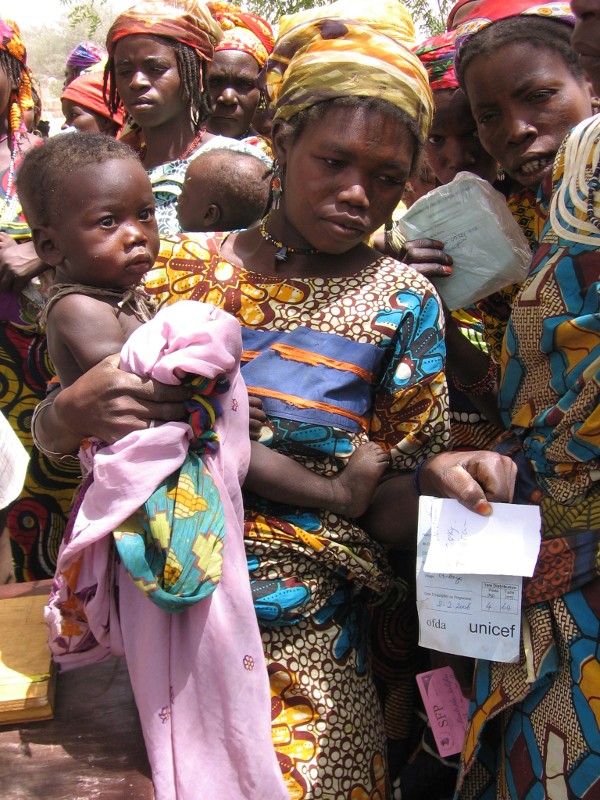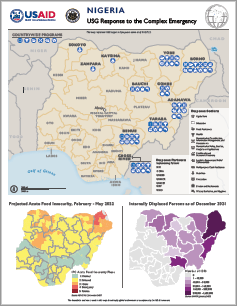- What We Do
- A New Roadmap to Health and a TB Diagnostic Test Help Improve Health Outcomes
- Agriculture and Food Security
- Anti-Corruption
- Climate Change
- Democracy, Human Rights, and Governance
- Economic Growth and Trade
- Education
- Environment, Energy, and Infrastructure
- Explore USAID’s New Storytelling Hub – Extreme Possibilities
- Gender Equality and Women's Empowerment
- Global Health
- Humanitarian Assistance
- Innovation, Technology, and Research
- Legal and Policy Requirements
- Nutrition
- Social and Behavior Change
- The Demographic and Health Surveys Program
- Water and Sanitation
- Working in Crises and Conflict
Speeches Shim

Latest Nigeria Fact Sheet
02.16.2021 - USAID-BHA Nigeria One-Pager ![]() (pdf - 763k)
(pdf - 763k)
Key Developments
Camp closures for internally displaced persons (IDPs) in Borno State have resulted in widespread displacement and heightened humanitarian needs in communities hosting recently arrived IDPs.
Organized armed group activity continues to generate and exacerbate humanitarian needs, cause civilian casualties, and displace populations throughout northeastern Nigeria.
Food insecurity persists across much of northern Nigeria, with Emergency conditions prevalent in conflict-affected areas of the Northeast.
USAID is also responding to the complex emergency in the Lake Chad Basin region, including areas of Nigeria, Cameroon, Chad, and Niger.
Please visit our web page for additional information.
Background
Continued Boko Haram- and Islamic State of Iraq and Syria-West Africa-related insecurity has resulted in population displacement, disrupted livelihoods, food insecurity, and protection concerns in northeastern Nigeria—primarily Adamawa, Borno, and Yobe states—since 2015. Insecurity continues to restrict access to basic services, and both displaced people and vulnerable host communities are in need of emergency food assistance, safe drinking water, relief commodities, as well as health, nutrition, protection, shelter, and water, sanitation, and hygiene interventions. The majority of internally displaced persons in northeastern Nigeria continue to reside in host communities and camps, straining local resources and exacerbating needs among displaced and host populations. On October 3, 2019, Chargé d’Affaires, a.i., Kathleen FitzGibbon redeclared a disaster for FY 2020 due to the ongoing complex emergency in Nigeria.
Last updated: January 21, 2022



Comment
Make a general inquiry or suggest an improvement.